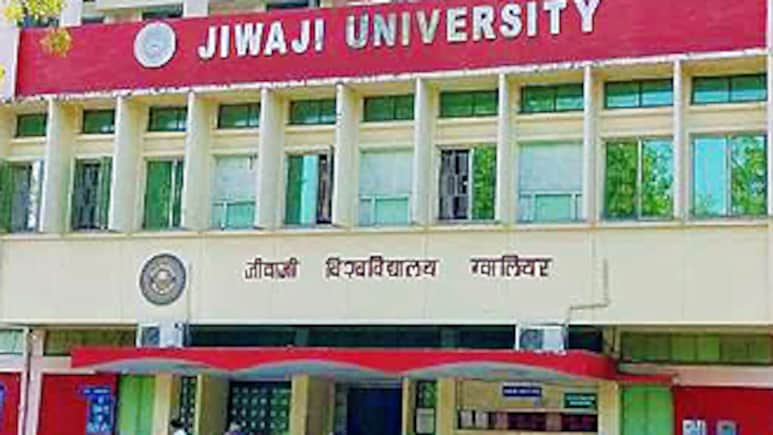
Jiwaji University Textbook Blunder: Gwalior's Jiwaji University, often in the news for its bizarre lapses, has once again turned higher education into higher confusion. For the last one and a half months, students of as many as 25 undergraduate and postgraduate courses have been studying from an outdated syllabus, while university officials conveniently “forgot” that the New Education Policy (NEP) 2020 had already scrapped the Choice Based Credit System. Only now, after wasting precious study time, the administration has suddenly remembered to implement the Major-Minor model under NEP—effectively turning classrooms into comedy shows at the cost of students' careers.
What makes this gaffe worse is that the Higher Education Department had issued clear instructions in April itself, directing universities to design syllabi for courses not covered by the Central Board of Studies. Instead of acting then, JU officials hit the snooze button and are now scrambling to prepare new syllabi within a month, hoping to start from the 2025–26 session. But while the administration buys time, students are left with nothing but wasted effort, looming exams, and growing anger.
In April 2024, the Higher Education Department directed all state universities, including JU, to redesign the syllabus for 25 courses under NEP. While the Choice Based Credit System (CBCS) model was scrapped, students were supposed to study under the Major-Minor subject model. But JU officials sat on the instructions for months. Only now, after wasting valuable teaching time, the administration has woken up to the mess. Vice Chancellor Prof. Rajkumar Acharya has asked departments to prepare fresh syllabi within a month, so that it can be implemented from the 2025-26 session.
The irony is sharp an education policy meant to modernize learning has been reduced to a farce by one of the state's biggest universities. 25 undergraduate and postgraduate courses have been studying the old syllabus, like MBA, BTech, MTech, MCA, BCA, BBA, law degrees, diplomas in food technology, museology, industrial chemistry, MSc and MPharma courses all still have no syllabus ready under NEP. For students who enrolled with big dreams, this delay is no academic error; it is academic negligence.
JU's Chief PRO Dr. Vimlendra Singh Rathore insists that “students will not suffer any loss,” claiming that syllabus work will be done within a month. But students argue they've already lost 45 days of study time that no press note can give back. With protests brewing on campus, JU's “study hall” has turned into a “hall of shame.”
In a state that boasts 33 overcrowded universities and colleges, this fiasco at Jiwaji is more than a syllabus slip-up it's a test of credibility. The government may preach about NEP as a game-changer, but in JU's hands, it looks more like a cruel joke. This is not the first time JU has invited criticism. From exam delays to chaotic results, the university has earned a reputation for indiscipline. Now, with NEP implementation mishandled, students fear their academic future could be irreparably harmed.
